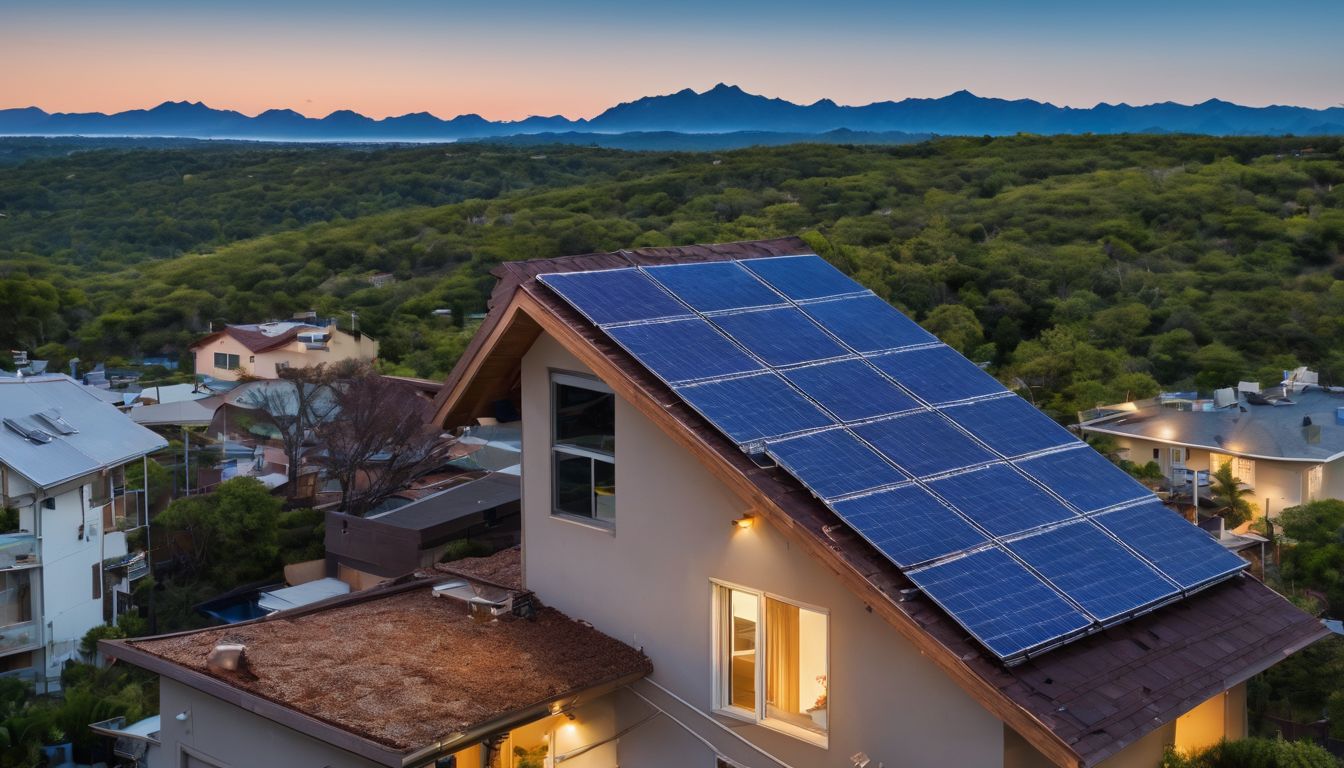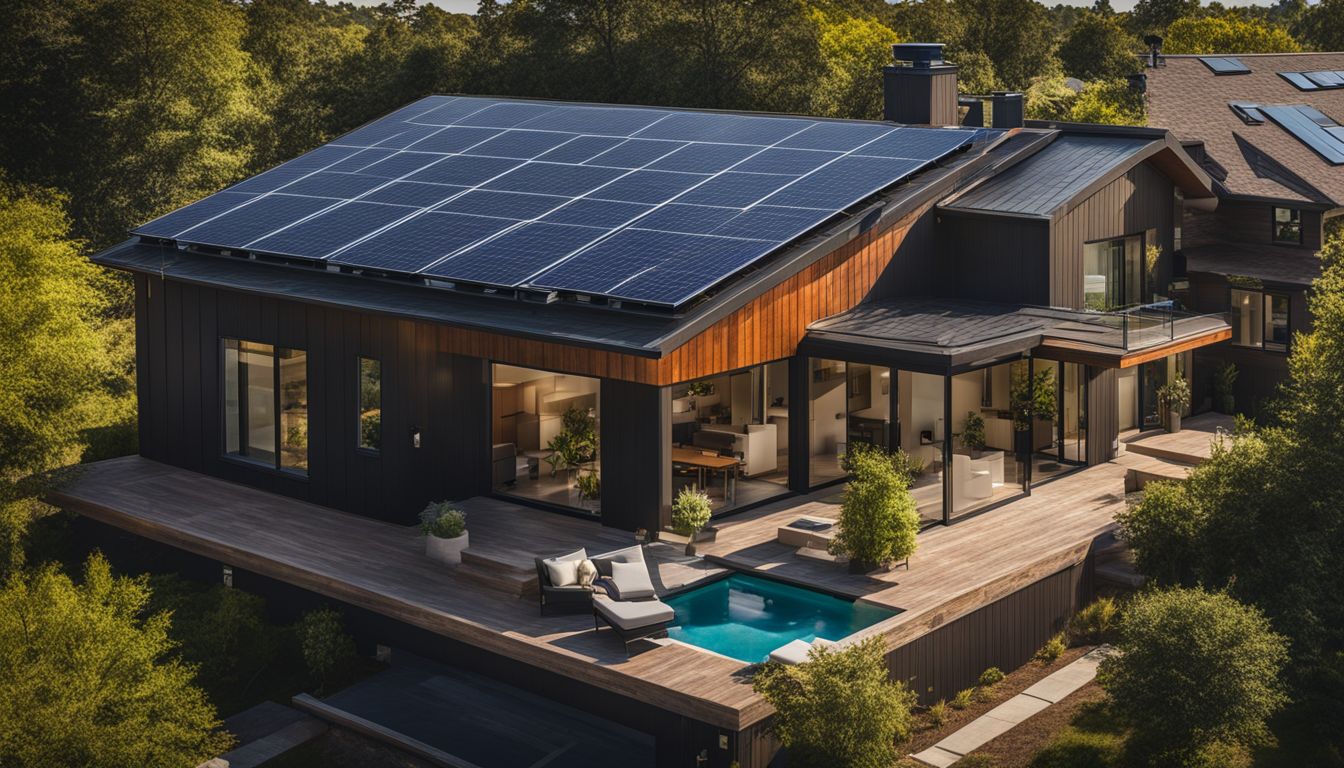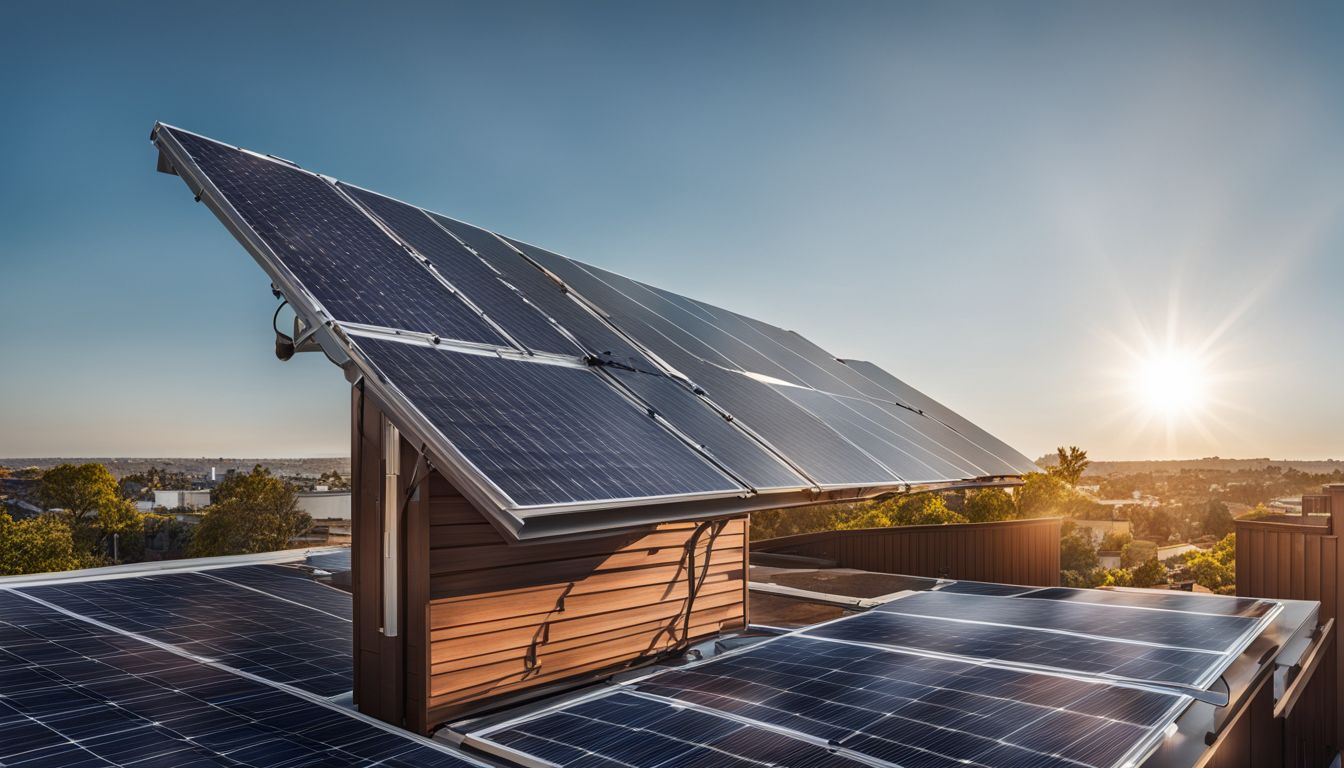How much is 5 kW?

Are you pondering the real-world impact of installing a 5kW solar system? Recent data suggests that an average 5kW setup can save households on hefty energy bills. This article will guide you through understanding the power and potential savings a 5 kW system holds for your home or business.
Let's shed some light on this bright idea!
Key Takeaways
- A 5 kW solar system generates about 20–25 kWh of electricity per day, which can power a normal household.
- The cost of a 5kW system ranges from $13,850 in the USA to around $5,650 in Australia and varies greatly in South Africa between R55,000 and R250,000.
- Energy from a 5 kW system can be stored in batteries for later use, and unused energy can go back to the grid for credits.
- Solar systems are most efficient when there's no shade or dirt on the panels and during cooler temperatures.
- A 5kW inverter might power a stove, but you need to check if it fits with other home appliances' energy needs without overloading.
Understanding 5kW Solar Systems

A 5kW solar system is a type of photovoltaic energy system that generates around 20–25 kWh of electricity per day, depending on factors such as location and weather conditions. This makes it suitable for powering a typical household with average energy consumption.
https://www.youtube.com/watch?v=pO3PxFrsa6Q
What is a 5 kW solar system?
A 5 kW solar system is made up of solar panels that turn sunlight into electricity. It's a size many people pick for their homes. Think of it like your own little power station on your roof.
This system can make about 20 kWh per day, but this varies with the weather and where you live.
To get this power, several solar panels are linked together. They work to capture energy from the sun and change it into a form we can use in our homes to run things like lights, TVs, and fridges.
The whole setup includes not just the panels but also an inverter to convert the energy and sometimes batteries to store extra power for later.
How much power does a 5 kW solar system produce per day?
Imagine a solar system with 5 kW of power. It can make about 20 kWh of electricity every day, but this can change with the weather and where you are. On sunny days, it might produce up to 22.5 kWh.
Even on less sunny days, you could still get around 15 kWh of energy.
This power is often strongest from late morning to early afternoon—think of times like between 10 a.m. and 2 p.m. That's when the sun shines brightest, and your solar panels work best! But remember, things like shadows or dirty panels can affect how much electricity your system will actually make.
Cost of 5kW Solar Systems

The cost of 5kW solar systems can vary depending on various factors, such as the brand, quality, and additional features. It's important to consider the long-term savings potential of investing in a high-quality system.
https://www.youtube.com/watch?v=G2cJ9_7F9yQ
Average cost of solar systems in the market
Understanding the cost of solar systems is crucial for homeowners and businesses considering an investment in renewable energy. Market prices can fluctuate based on factors such as location, manufacturer, and installation costs. Here's a snapshot of the average solar system cost, highlighting what consumers might expect to invest in a 5 kW setup:
| Country | Average Cost (local currency) | Average Cost per Watt |
|---|---|---|
| USA | $13,850 | $2.776 |
| South Africa | R55,000 - R250,000 | Varies |
| Australia | About $5,650 | $1.13 |
Prices above reflect the average market cost for a 5 kW system, excluding potential subsidies or incentives. These figures can serve as a benchmark for anyone researching this renewable energy option. Remember, factors such as local solar irradiance, system quality, and additional features like battery storage will influence the final price point.
Efficiency of 5kW Solar Systems
The efficiency of a 5 kW solar system can be affected by factors such as shading, panel orientation, and temperature, so understanding these variables is crucial for maximising power output.
To learn more about how to optimise the efficiency of your solar system, keep reading.
https://www.youtube.com/watch?v=-W7ViRPgiKU
What might affect power output?
A 5 kW solar system could produce less power than expected sometimes. Many things can change how much electricity you get. Here's a list of what can affect the power output:
- Shade: Trees or buildings making shadows on your solar panels will stop them from getting full sunlight.
- Dirt and dust: If panels are dirty, they won't catch as much sun.
- Hot weather: Solar panels work best when it's cool. Too much heat can make them less efficient.
- Panel angle: How your panels tilt toward the sun matters a lot for catching rays.
- The quality of equipment: good solar inverters and panels usually mean more power.
- Wear over time: Older solar systems might not work as well as when they were new.
- Not enough light in winter: Shorter days mean fewer hours for your panels to work.
Time of day for maximum power production
The best time for your 5-kW solar system to make the most power is when the sun is shining bright. This usually happens in the middle of the day. Solar panels work hardest and turn more sunlight into electricity from late morning to mid-afternoon.
Clouds or shadows can stop the panels from making as much power. Trees, buildings, or even dust on the panels could cause shadows too. To get lots of energy from your solar system, you should make sure nothing blocks the sun's light during peak hours.
Utilization of 5kW Solar Systems
Can the energy be stored for later use? What happens to unused energy?? Can a 5kW inverter power a stove? Find out more about how you can harness the full potential of your 5-kW solar system to meet your energy needs.
Can the energy be stored for later use?
Yes, the energy from a 5 kW solar system can be saved for times when you need it. Solar panels make DC power from sunlight, and this power can go into batteries. These batteries keep the extra power your solar system makes.
Then, when you're not making solar energy, like at night or on cloudy days, you can use that stored power instead.
Solar battery systems are smart. They check how much electricity your home uses. When there's more power than what your house needs, they save it up. Later on, you can use that energy to do things like turn on lights or watch TV without using electricity from outside your home.
This is great because you don't waste the clean energy your solar panels make!
What happens to unused energy?
If your 5 kW solar system makes more electricity than you need, it doesn’t go to waste. You can send the extra power back to the electricity grid. In return, you might get credits from your energy company.
This is called net metering.
Some systems have solar batteries for storing this extra power. Later on, when there's no sun or it’s nighttime, you can use the stored energy instead of buying it from the grid.
Battery storage helps make a 5kW system up to 80% efficient, letting you keep and use most of the power your solar panels create.
Can a 5kW Inverter Power a Stove???
A 5kW inverter can power a cooker, but it is important to consider the total load capacity and the energy usage of other appliances connected to the inverter. While a 5kW inverter can handle powering typical household appliances, if there are high-power devices like geysers or ovens that require more electricity, an additional power supply may be necessary.
It's essential to carefully evaluate the total power demands and ensure that the 5 kW inverter can accommodate all devices without overloading.
When determining whether a 5kW inverter can effectively power a cooker, it's crucial to factor in not just the individual appliance's wattage but also any potential additional energy needs from other electrical equipment within your home.
Conclusion
In conclusion, a 5kW solar system can produce around 20–22 kilowatt-hours of power per day, depending on weather and sunlight. The cost of a 5kW solar system varies between $5,800 and $15,000 based on location and brand.
It could be an excellent investment for cutting energy costs and reducing grid reliance while possibly qualifying for federal tax credits. Understanding the potential returns is crucial before making a purchase decision.
FAQs
1. What does 5 kW mean when talking about energy?
A 5 kW, or kilowatt, is a measure of power; it's how much energy something can make or use in one hour. Think of it like the strength of your air conditioner or washing machine.
2. Is 5 kW enough to power my home appliances?
Yes, a 5kW system can run lots of home appliances like fridges, freezers, and washing machines together. But how long you can use them depends on the battery backup and solar PV system you have.
3. Can I save money with a 5kW solar PV power system?
You sure can! Solar power is from the sun, so it's free, which means lower electricity bills. Plus, if you get renewable energy certificates or tax credits, that helps too!
4. Will a Deye 5kw hybrid inverter help during power cuts?
Absolutely! This hybrid inverter switches between solar and battery backup without missing a beat, which keeps your electrical appliances running smoothly even if there’s no grid power.
5. How do I store the extra solar electricity my 5 kW panel produces?
With proper energy storage systems like lithium iron phosphate (LiFePO4) batteries or other battery backups, any extra solar electricity gets stored for later, so nothing goes to waste!
6. If everyone used a 5 kW system, would that be better for our planet?
Using sustainable energy, like what comes from those nifty rooftop solar panels, helps reduce nasty fuels that hurt our planet, plus we lighten the load on the national grid, which is great news for everybody.











